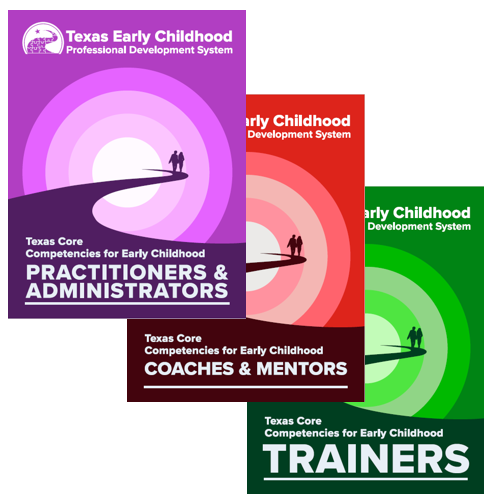Texas Core Competencies

Overview
Core competencies are essential concepts, skills, and abilities for early childhood professionals. In Texas, these competencies guide Practitioners, Administrators, Trainers, and Coaches/Mentors in their roles and training. Mastery of these areas ensures effectiveness in supporting children’s growth and development. For detailed competencies under each area, download the full Core Competencies documents.
Texas Core Competency Areas
Texas Core Competency Resource Guides

- Texas Core Competencies for Early Childhood Practitioners and Administrators
- Core Competencies for Trainers
- Core Competencies for Coaches and Mentors
Core Competencies Alignment to NAEYC
TECPDS recently completed an alignment of the Texas Early Childhood Core Competencies for Practitioners to the National Association for the Education of Young Children’s Professional Standards and Competencies for Early Childhood Educators.
Core Competency Training Modules
The content and structure of the competencies can be thought of as a framework for assessing knowledge and skills, guiding training and professional development opportunities, and monitoring progress. Through CLI Engage, early childhood professionals can learn about the Texas Core Competencies for Early Childhood Administrators and Practitioners. This training was designed for use by early childhood professionals to improve the quality of care and education young children receive.